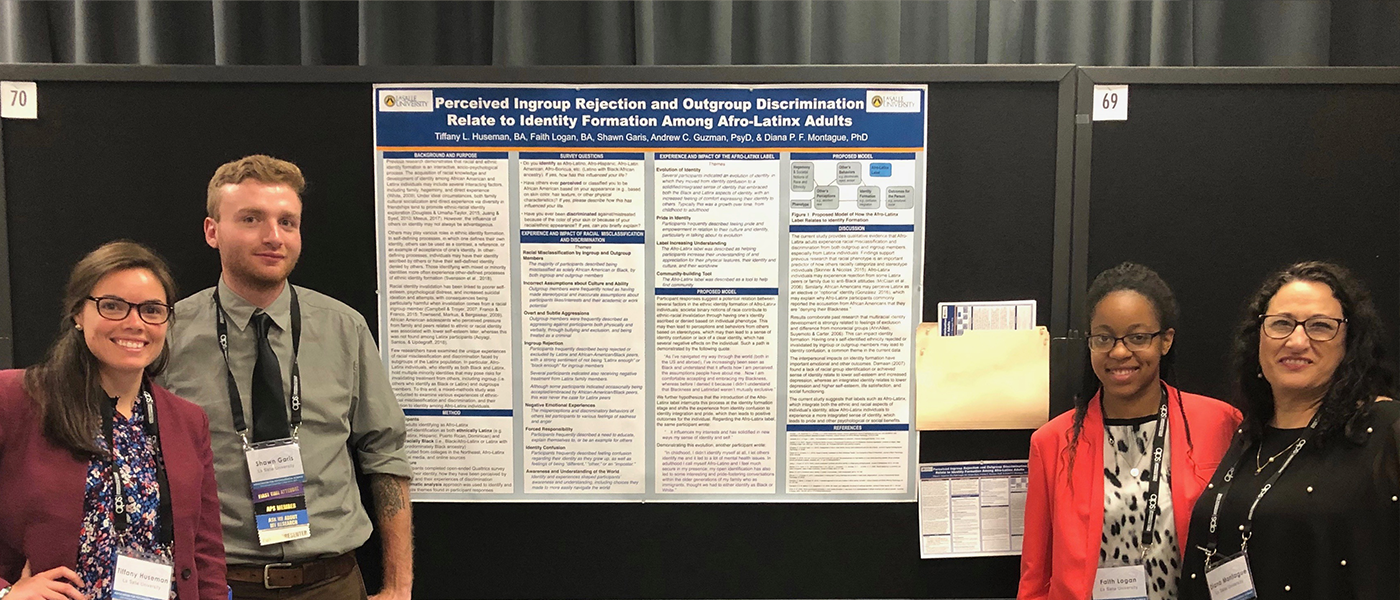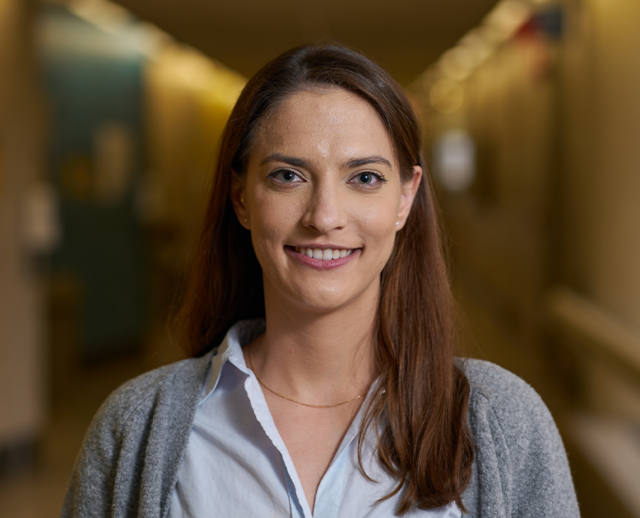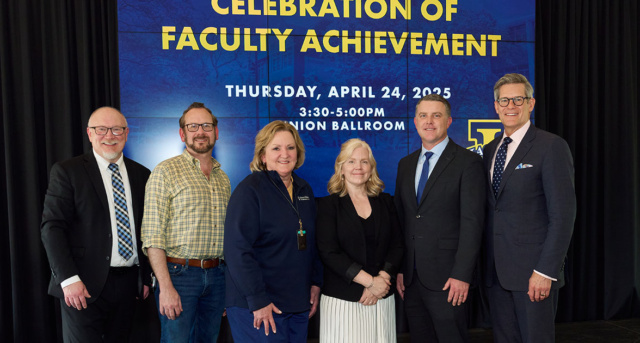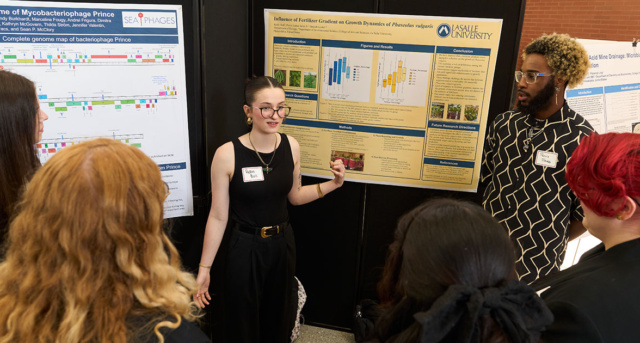La Salle University

Clinical Psychology (Psy.D.)
- Doctoral Program
- 5-year
What You’ll learn
La Salle University’s Psy.D. Program in Clinical Psychology strives to educate and train students in the science and practice of clinical psychology so that they may function effectively in a variety of professional psychology roles including, but not limited to, psychotherapy, psychological assessment, and clinical research. The program is based on the practitioner-scholar model of professional training and emphasizes a cognitive-behavioral theoretical orientation. Evidence-based practice, psychological science, psychological theory, ethics and professional standards, and sensitivity to and awareness of diversity and individual differences are embedded throughout the curriculum.
Why Study Clinical Psychology at La Salle?
Guided by an appreciation and respect for individual and cultural differences La Salle University’s Psy.D. Program is committed to promoting diversity, equity, inclusion, and belonging. We are committed to training psychologists who demonstrate cultural humility; who deliver culturally-informed and culturally-responsive services that center the individual’s dignity, worth, and value; and recognize the sociocultural contexts within which individual’s function.
The program is intended for students who have completed a bachelor’s degree in psychology or a related field or who hold a master’s degree in a mental health discipline. The curriculum is designed as a five-year full-time program, however, students may take courses on a part-time basis for up to two years. Please note that all graduate degrees must be completed within seven years from entry to degree completion.
Additional program strengths:
- On-campus training clinic utilized by all Psy.D. students for a minimum of two years
- Internship match rate consistently at or above the national average
- Emphasis on mentorship
- Three areas of concentrated study: General Practice, Child Clinical, and Clinical Health
- Multiple training opportunities in behavioral medicine, neuropsychology, weight/eating, anxiety, suicide prevention, depression, emotion regulation, mindfulness, child psychology and autism
- Annual Diversity Forum
- Two-year practicum progression (with an optional third year)
- Full-year clinical internship
- Clinical dissertation
- Alumni employment rate of 98% (22 different types of settings, most common are community mental health, veterans administration medical centers, and private practice settings)
- Psychology licensing exam pass rate of 89%
Highlighted Courses
PSY 740 – Advanced Cognitive Behavior Therapy: Theory and Application
This course is intended to provide the historical development, theoretical rationale, and the empirical base for rationalist, constructivist, and contextual approaches to cognitive behavioral therapy. Contemporary approaches to cognitive behavioral psychotherapy will be discussed in terms of its efficacy in the treatment of a wide range of psychological disorders and with diverse populations. Issues relating to psychotherapy integration and treatment of diverse populations will also be covered in this class.
PSY 785 – Introduction to Professional Practice, Ethics and Conduct
This course includes didactic and discussion components and focuses on issues important to professionals about to enter the field, including an orientation to modern clinical psychology, an introduction to ethical and legal issues, and trends in professional education and practice.
PSY 719 – Psychological Assessment of Children and Adolescents
This is a skills course in which the student will become familiar with psychological assessment principles, tools, and practice with children and adolescents. The student will be given training in the selection, administration, scoring, and interpretation of a variety of measures appropriate to children and adolescents. Students will then learn procedures for effectively utilizing these measures with the individual assessed, family, school, and other significant elements of the child’s world.
PSY 711 – Human Diversity
This course will provide students with the knowledge needed to be clinically sensitive therapists able to work with a range of individuals from diverse backgrounds. This course has two parts: 1) multicultural diversity and 2) individual diversity.
In the first part of the course, we will cover cultural differences and how they relate to the diagnosis of psychopathology and what we consider “normal” versus “abnormal.” We will explore how cultures differ on important clinical issues such as violence, suicide, expression of emotions, and childrearing, among many others. Practical implications, the APA’s guidelines for multicultural competency, and some multicultural therapy approaches will be presented.
The second part of the course will be a discussion of the other ways individuals are diverse and therefore can be treated unfairly in our society. We will spend time examining society’s acceptance, views, and treatment of individuals who are considered diverse, or would be considered minorities, because of their gender, religious practices, sexual orientation, disability, socioeconomic status, or medical conditions. Our role as psychologists in assisting those in need and the importance of social activism will be explored. Practical implications for successful therapy with diverse individuals will be discussed. Finally, we will discuss the importance of therapists’ acknowledgment of their own biases and how these biases can influence the therapeutic process if not addressed.
Meet the Faculty
Career Opportunities
There is a high and increasing demand for mental health services. The Bureau of Labor Statistics estimates 6% growth in employment for psychologists from 2022-2032. After completing our program, approximately 60% of our students proceed to postdoctoral fellowships in hospitals, academic medical centers, community mental health, and private practice settings. We have 98% alumni employment rate at multiple different types of settings including community mental health, veterans administration medical centers, hospitals, re-habilitation centers, and private practice.
Internship placements have included:
- Temple University – Tuttleman Counseling Services
- Washington Pediatric Hospital
- WellSpan Philhaven
- VA Maryland – Neuropsych track
- Center for Anxiety (private practice)
- Jackson Health System/University Miami Miller School of Medicine
- Rutgers University College Counseling Center
- The Village for Families & Children
- Holcomb Behavioral Health System
- Augusta University-Medical College of Georgia/ Charlie Norwood VAMC
- Christiana Care Health System
- Westchester Jewish Community Services
- Nicklaus Children’s Hospital
- Kaiser Permanente (several locations in California)
- Corporal Michael J. Crescenz VA Medical Center
- MetroHealth Medical Center
- Miami VA Healthcare System/Psychology Service
- UNC College Counseling Centers
- Montefiore Medical Center
- Julia Dyckman Andrus Memorial Children`s Center
Student Profile
Meredith Cola, ’25
Meredith Cola, ’25, decided to further her psychology education at La Salle because of what the program had to offer, and is now working with the Center for Autism Research (CAR) at Children’s Hospital of Philadelphia (CHOP).

Application Process
The Clinical Psychology Program has some additional requirements beyond the typical application process. Find more information through the link below.
Accreditation
The Psy.D. Program in Clinical Psychology is accredited by the American Psychological Association. For general information about APA accreditation or specific information about the accreditation status of the Psy.D. Program at La Salle University, please contact:
Jaqueline Remondet Wall, Ph.D.
Director, Office of Program Consultation and Accreditation
Associate Executive Director, Education Directorate
American Psychological Association
750 First Street, NE
Washington, DC 20002-4242
(202) 572-3037

The annual celebration recognizes faculty, acknowledges achievement, and honors retirees.

Bishop Joseph L. Coffey, ’82, Alexis Sanchez, ’25, and Sister Isabella “Bella” Davila, DC, MSW ’25, headline the graduation speaking honors.

The annual event provides a platform for students and faculty to share their research, foster academic dialogue, and strengthen alumni engagement.